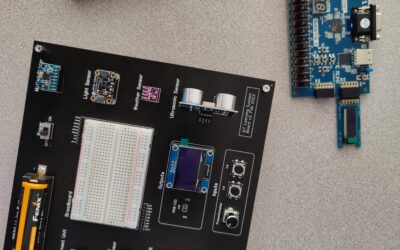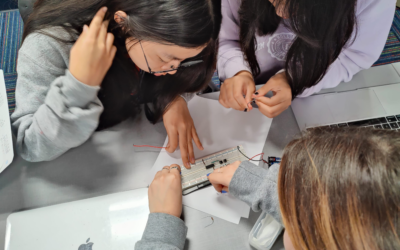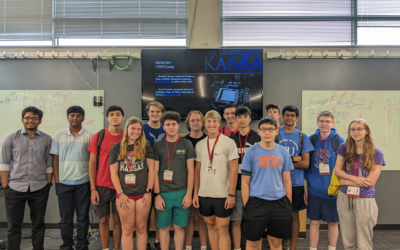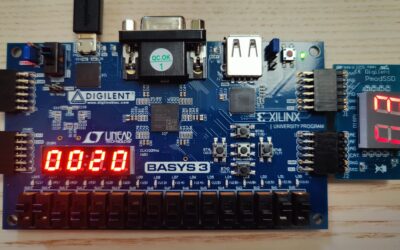Curriculum Implementations
Our project employs a design-based research (DBR) methodology to improve the curriculum through iterative analysis, design, development, and implementation. We have collected data for specific purposes during each implementation, and the results are analyzed to refine our approach. Our overarching goal is to foster the development of a hardware engineering identity and sustained interest in the field, particularly focusing on addressing the needs of underrepresented groups.
Fall 2023. Undergraduate courses at the University of Florida and the University of Kansas.
During the Fall semester of 2023, we implemented our curriculum as an undergraduate elective course within the Electrical and Computer Engineering (ECE) department at the University of Florida and the University of Kansas. In this cycle, we expanded the curriculum to...
Summer 2023. Honors seminar in the Student Science Training Program (SSTP) at the University of Florida
In this seminar, we offered an honors seminar to ten high school students in the SSTP summer program. Our activities aimed at balancing simulations, real-life circuit design, FPGA-based games, and collaboration to develop FPGA-based projects to address real-world...
Summer 2023. Summer camp at University of Kansas
We organized the Computer Science Summer Camp 2023 of the University of Kansas, with 34 enthusiastic high school participants from different states. The camp offered a unique opportunity to get introduced to the intricate world of computer hardware. The students...
Pilot test. Jan 2023. After school activity
In this pilot test, 7 high school students were engaged with the initial two games from the curriculum utilizing a Digilent Artix-7 FPGA. The games covered topics on binary numbers and Boolean logic. During the activity, students uploaded necessary files onto the FPGA...




